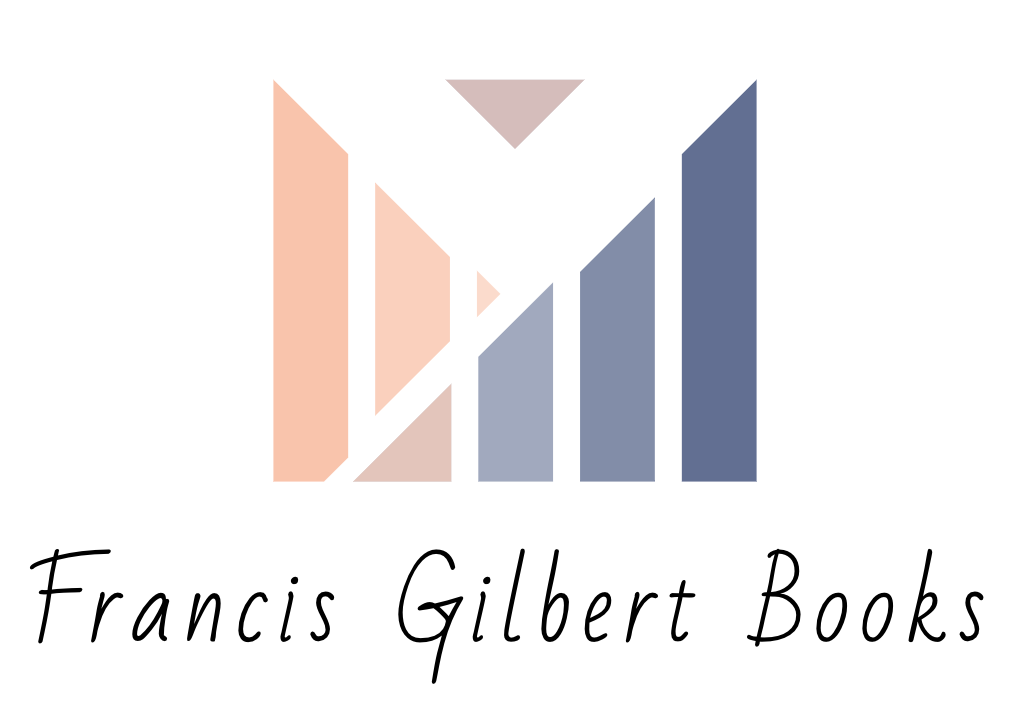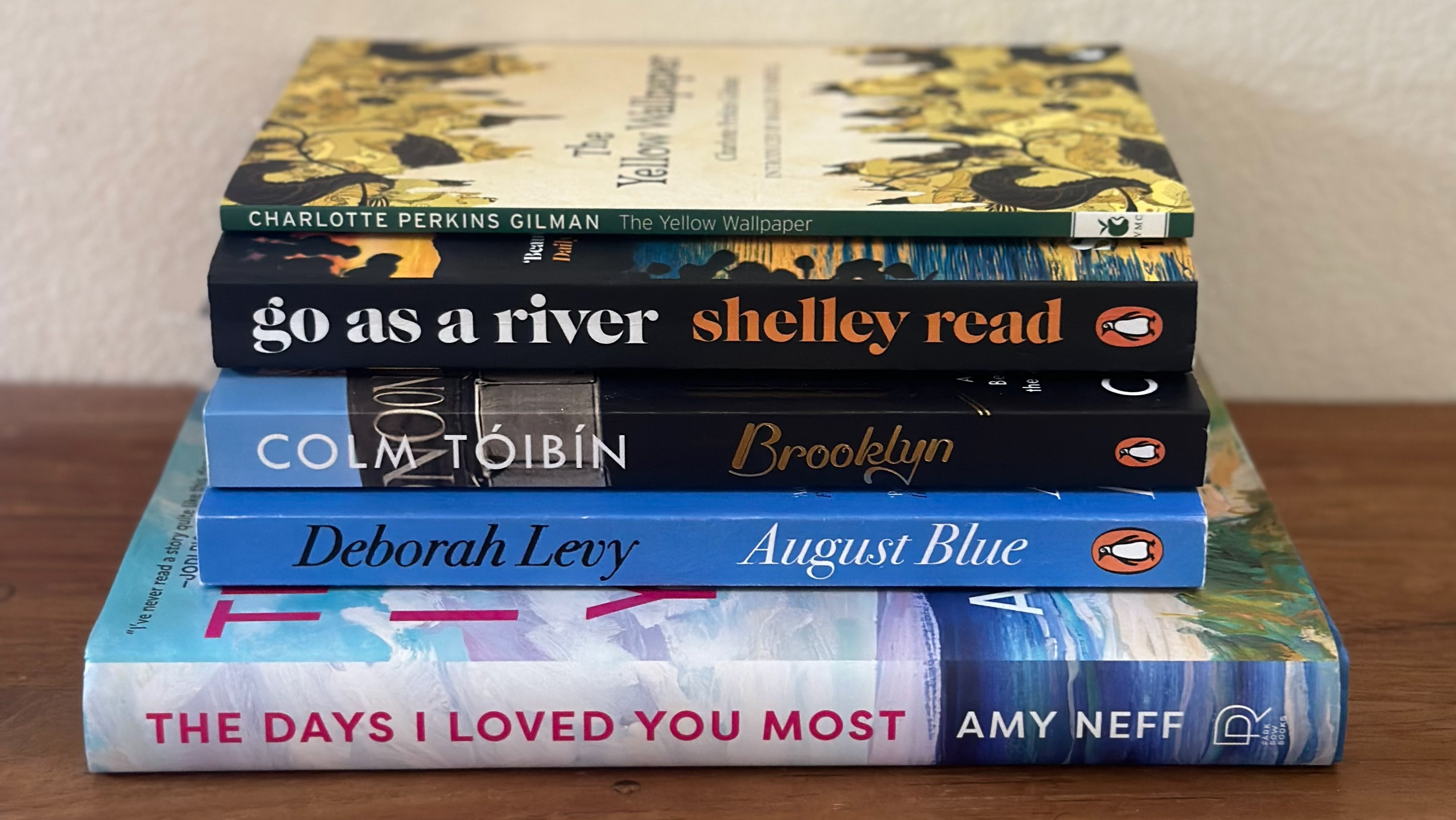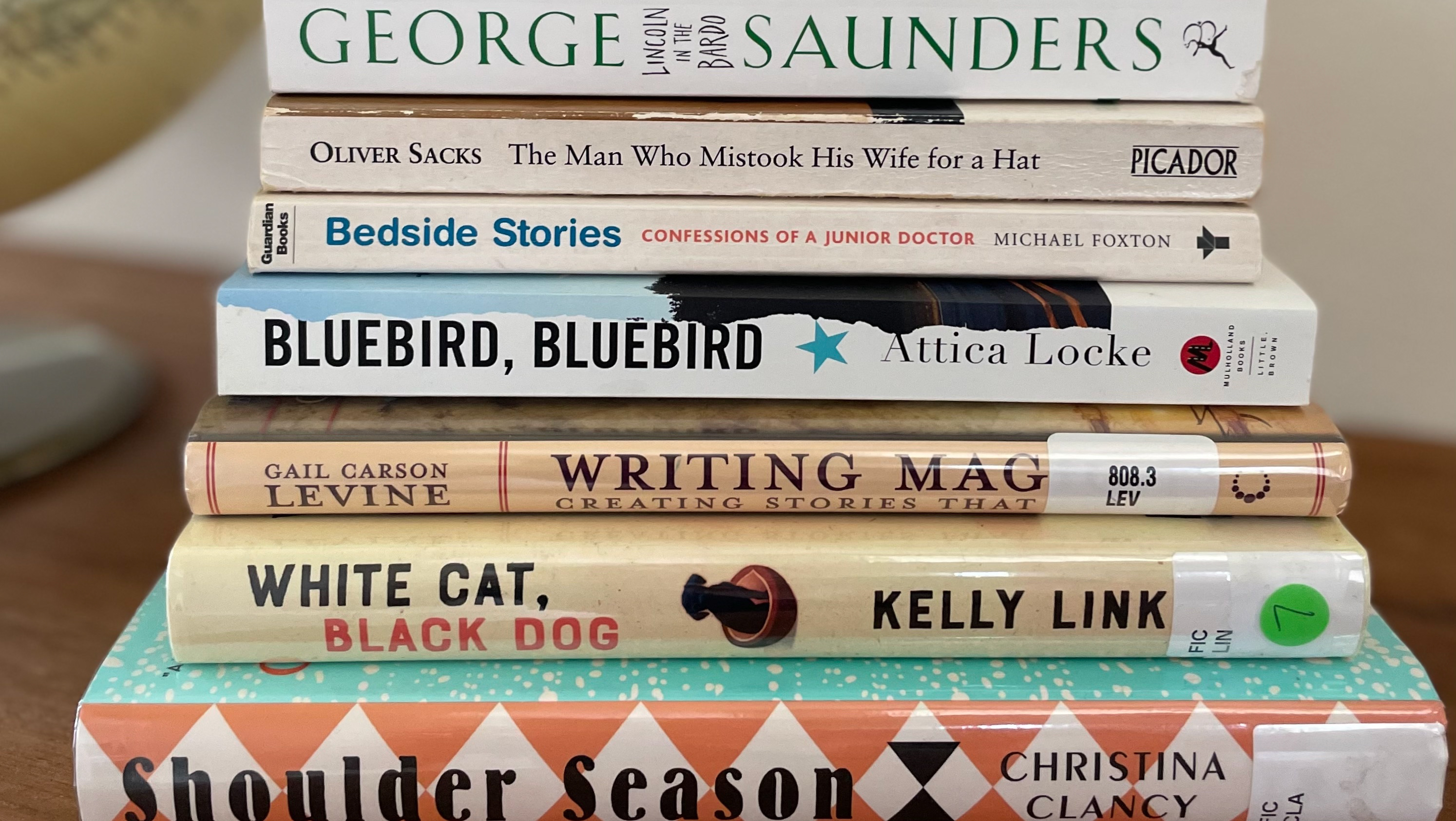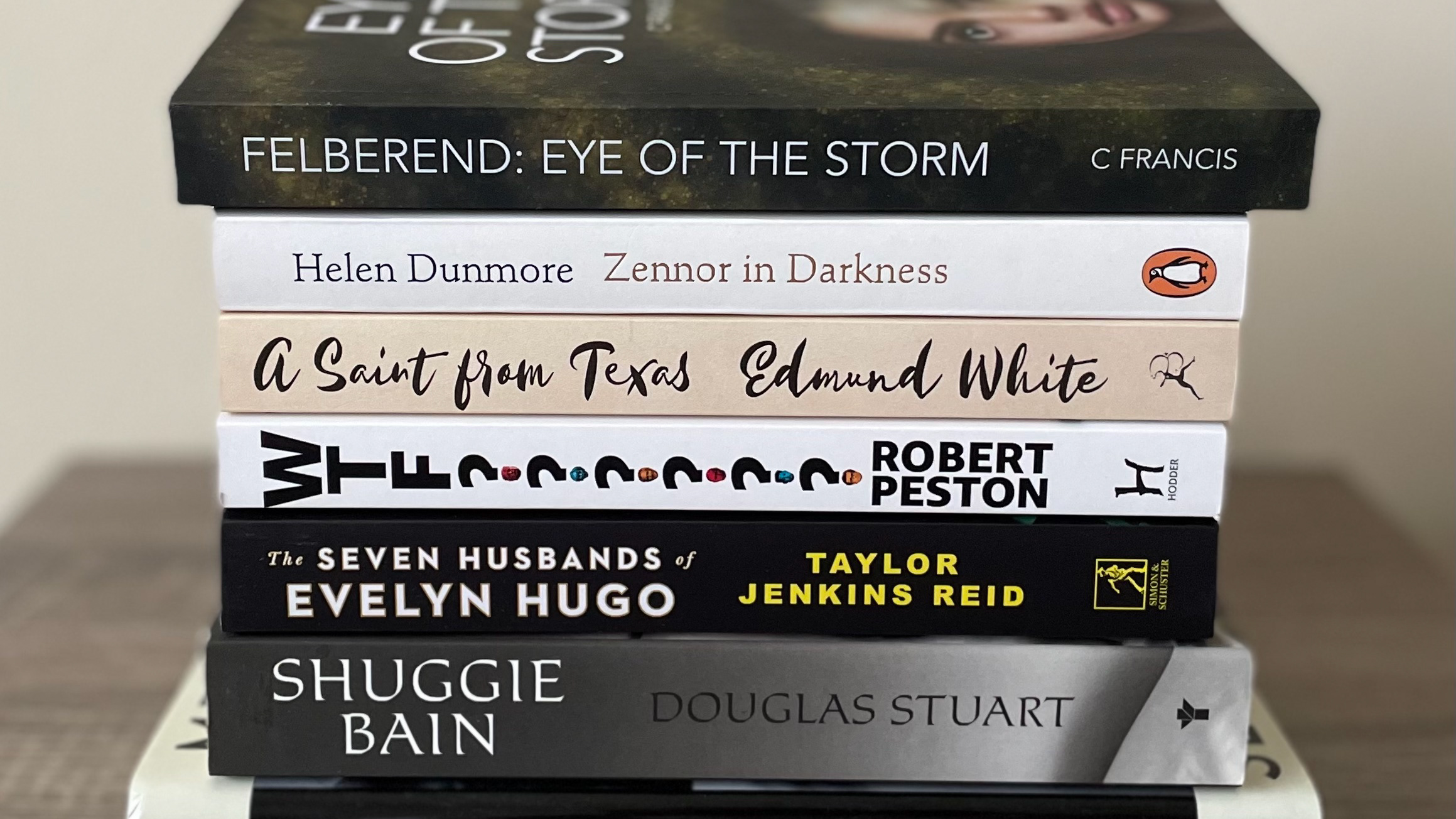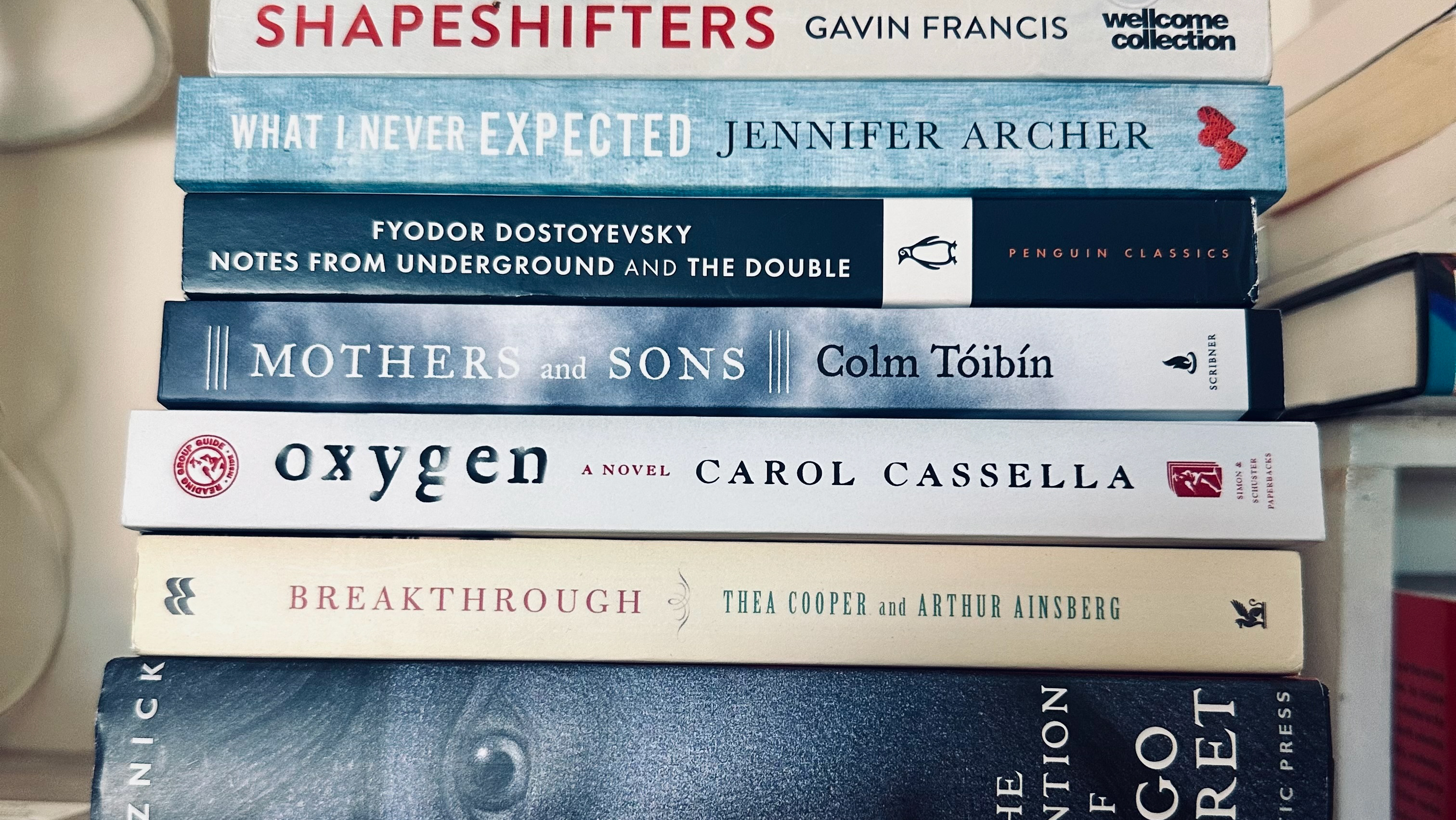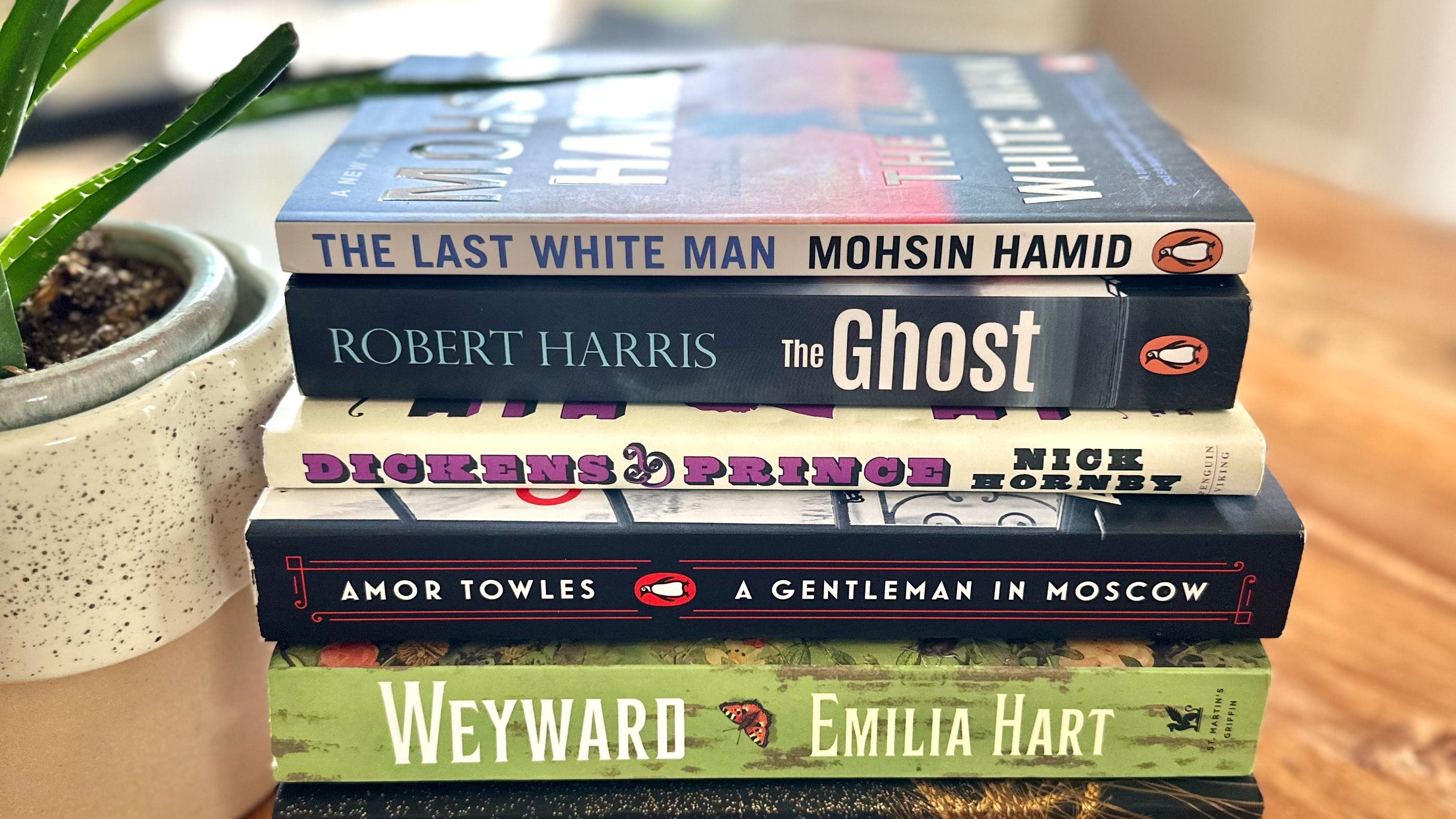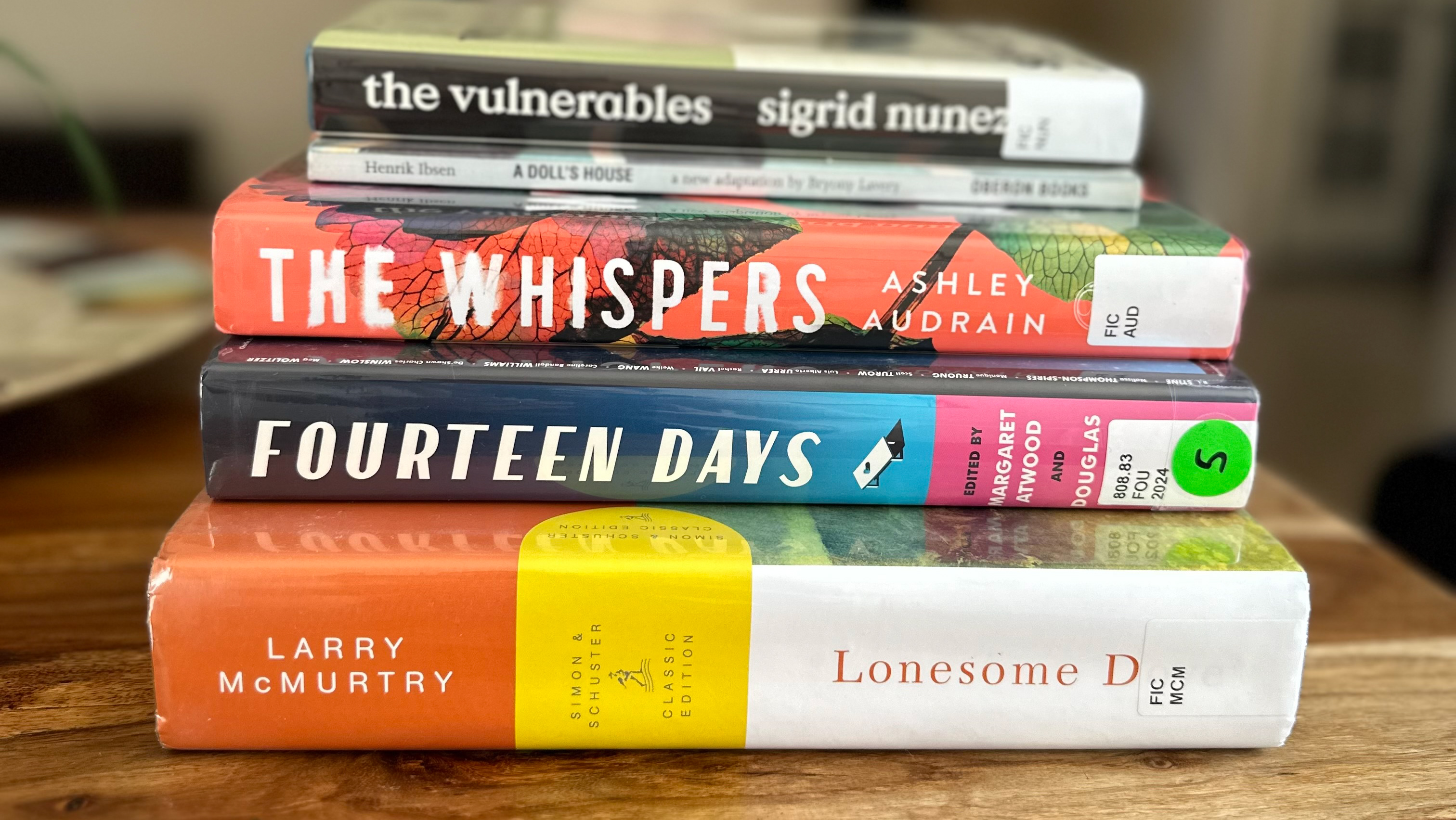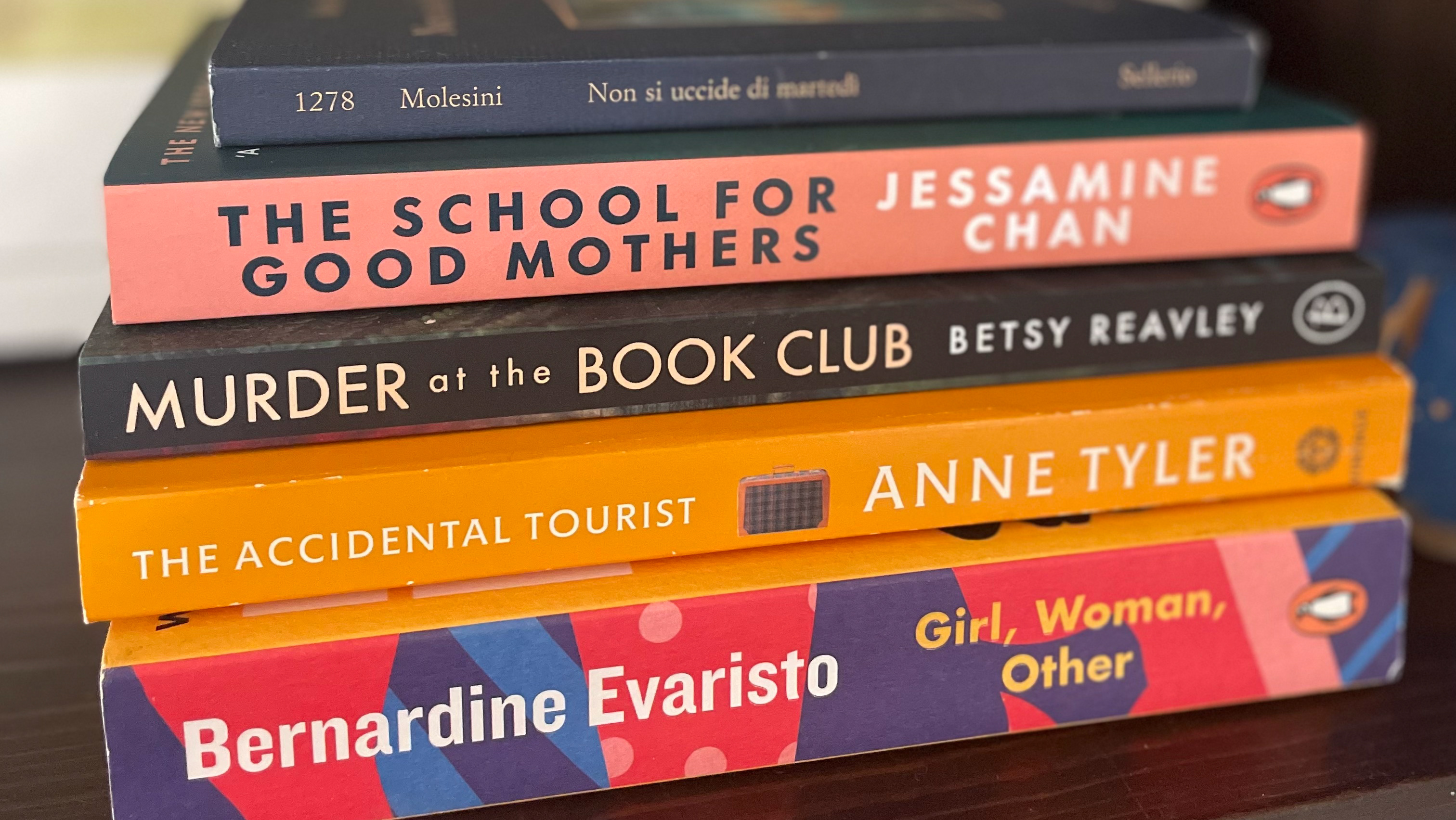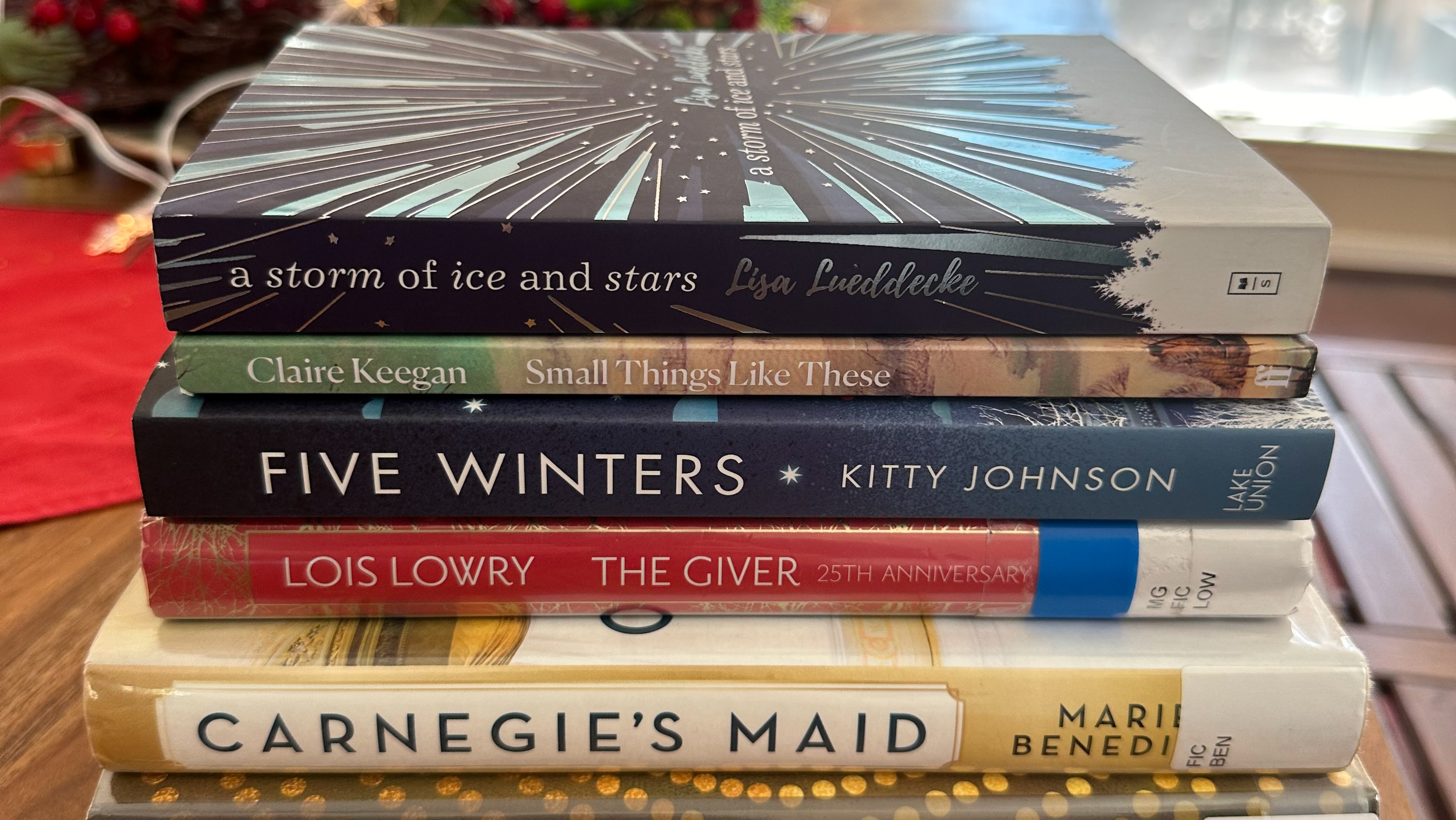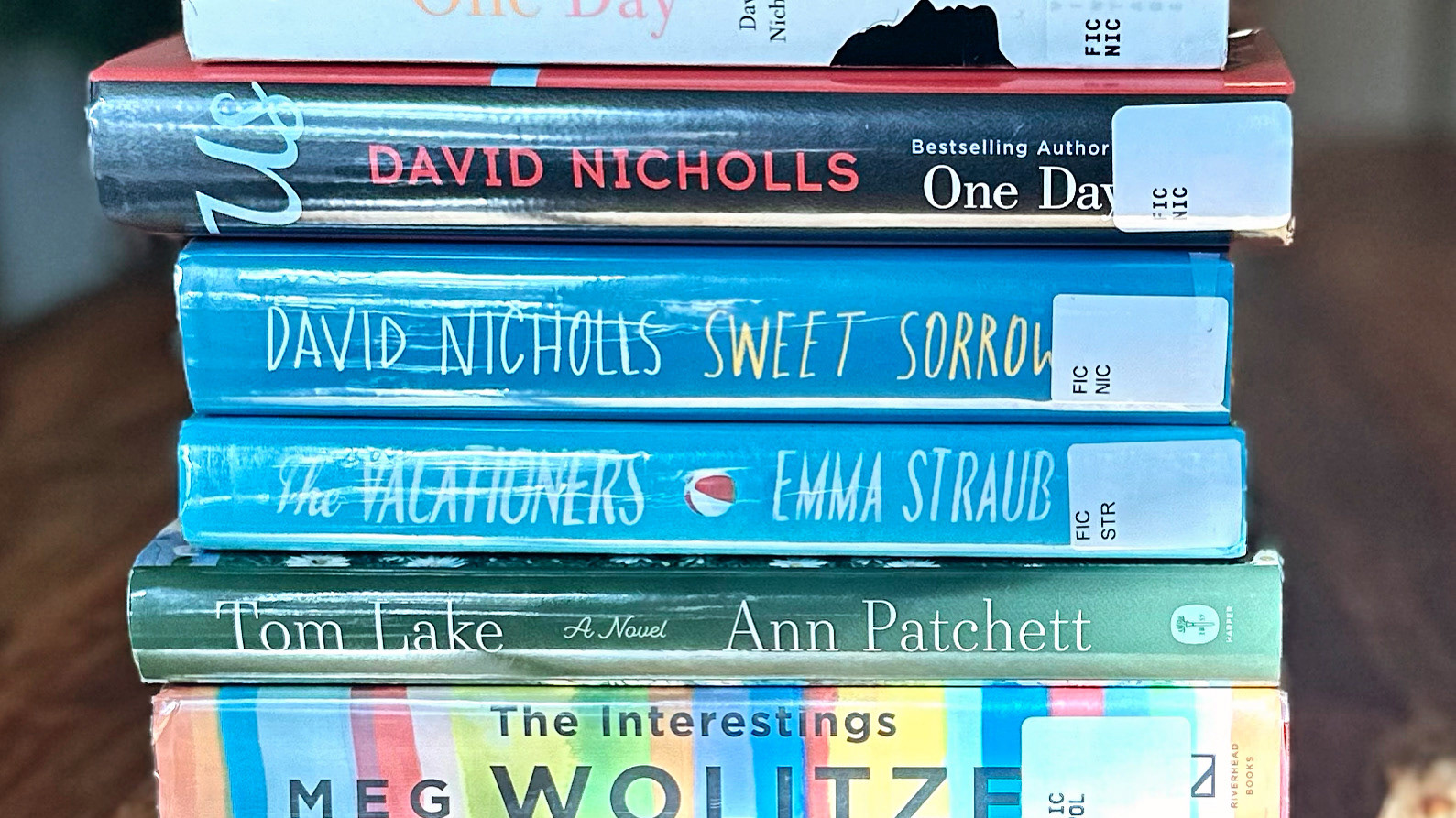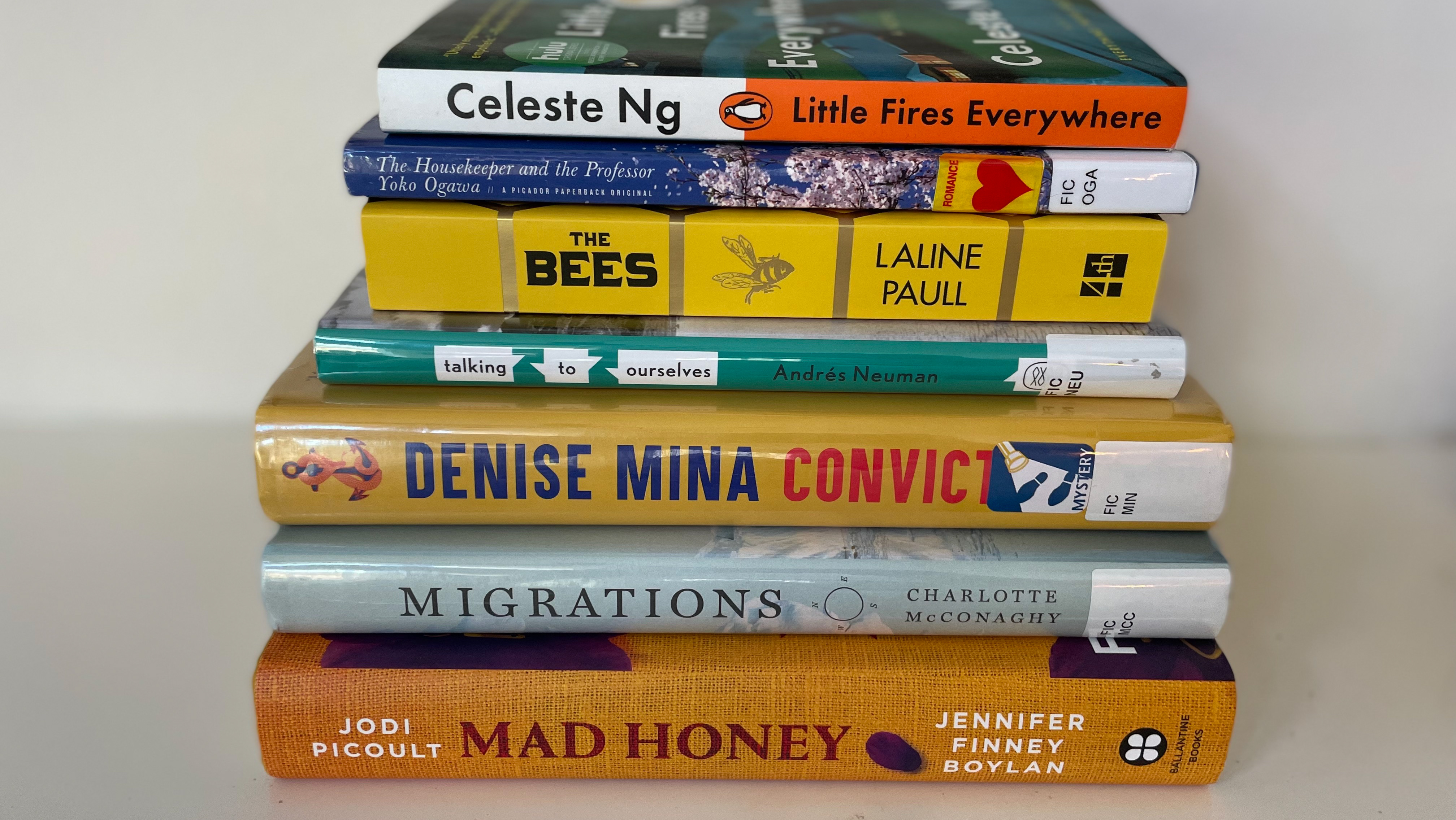Whereabouts by Jhumpa Lahiri
Of course Lahiri's choice of title offers an insight into the vague uncertainty of her protagonist's journey in this novel. The original Italian title makes sense alongside the English translation too: Dove mi trovo.This novel is beautifully concise with its simple locations like the trattoria, the piazza, the bookstore, the waiting room and the unnamed voice of the experiences in the novel traverses these spaces frequently. As I read, I felt as if the observations, interactions and words shared in these spaces were building a web or a network of support for the narrator. All the memories and nostalgia she has in the unnamed city intertwine, particularly those of her mother. There are casual acquaintances, colleagues as she is a lecturer and a male character who is her neighbour but who "both consoles her and unsettles her," but there is an uncomfortable feeling throughout of the narrators unstable lack of confidence or simply her absorption of a solitude from which she can't escape.
It's a beautiful novel and the fact it was originally written in Italian seems incredible. The narrator's questioning of her place in the world and the "wavering between stasis and movement, between the need to belong and a refusal to form lasting ties," resonates with me as a person who has learnt foreign languages and lived abroad but also moved from place to place, language to language. Fascinating!
I love that on the blurb it was noted as being "a play of shadow and light" and "a nuanced portrait of urban solitude."
review by Christina Francis-Gilbert
Lucy by the Sea by Elizabeth Strout
Eerily comforting. Lucy Barton's voice is so sad, so childlike and so self-reflective that Strout's spirit of a character Lucy draws readers yet again into a mesmerising observation of her part of the world. Yet the way she tells those experiences and tales transforms the microcosmic nature of small-town events and incidents into macrocosmic realisations about the whole world.
Set immediately prior and during the recent Covid-19 pandemic, Lucy is helped to evacuate her apartment in New York by her ex-husband but long-term friend William, to move to the coastline and the small town of Crosby in Maine.
Lucy appears so ignorant or oblivious to the ways of the world and constantly speaks to the reader of her not knowing anything. Yet, the profundity of her analysis and understanding of people, their inadvertent actions, words and choices pulls the reader in and shows us what empathy really is.
Strout's historical representation of the events of this time period are excellent. I am reading this novel in 2024 and have dismissed many of the horrifying memories of what has happened in the world during those times, but she has gently prodded at those underlying thoughts that need to be remembered as we continue into new periods of the 21st century.
I read Tell Me Everything not long ago and actually think reading this novel following it makes sense. I love that Strout's novels and her characters are so established and connected with place and their strong unique motifs that it doesn't really matter in which order you read her books.
One thing that I did strike me as interesting as I read this novel of Elizabeth Strout, is how reminiscent her characters are of those in Arthur Miller's drama plays. In particular, elements of this novel reminded me of 'All My Sons'. Of course, I have seen it stated that to show that the message behind Miller's writing in this play is that, "a man's public acts and responsibilities are inseparable from his private ones, that he is as responsible to all mankind as he is to his family." During the years of the pandemic and its corresponding political history, this message applies.
review by Christina Francis-Gilbert
Jellyfish Have No Ears by Adele Rosenfeld
Goodreads Review
Rosenfeld's novel, written in French is translated to English by Jeffrey Zuckerman, who is deaf and explains in his Translator Acknowledgements how "a lifetime of lipreading" made his work of translating puns and misunderstanding easier.
The experiences are from Louise, whose narrative opens in the hallway of a medical building called Castaigne, which she heard as "Castagne". She sees an older lady shouting at her and replies that "Ma'am, I don't think I hear any better than you do," and we are certain of the hearing difficulties she has faced since she was little and is now needing to navigate as an adult whose hearing has "withered away" so that the "sound was gone".
Her life is shown as one of "in-betweenness" dealing with an invisible disability which she has endured but through which she has wanted to persevere, with minimal support. For example, the interactions with her mother and her colleagues in her workplace show how Louise has striven to live a life the same as others, using lip-reading and a lot of guessing to understand. She gets it wrong though. Her hearing is getting worse, if not gone forever and she is now in a state of decision as to whether she ought to accept a cochlear implant that would change her relationship with the world completely by giving her a sense that would diminish the other senses she has honed to her advantage in her life so far.
The chapters are brief and succinct drawing the reader into the daily occurrences of Louise from her intense sensory perspective. What makes these experiences even more surreal is that much of Louise's daily incidences are layered with dream-like hallucinations she has imagined from a damaged soldier from World War I, an irritable dog that keeps appearing and a whimsical botanist. All very weird but wonderful in the way it pushes the reader to understand the layers of reality that exist for a person who is not accessing life the same as everyone else. The protagonist Louise is basically constructing her own life and perceptions of reality from the misheard sentences and words and misinterpreted gestures and actions of others around her. Fascinating!
So many wonderful themes like identity and self-perception, the power of language, communication and the barriers that are related to both, and a lot about the complexities of disabilities and how they are perceived in society.
Thank you to Kelly Turner who gave me this novel because she saw that it would interest me in terms of its connections with invisible illnesses or disabilities, its alternative novel structure and the thoughts a character may have about changing their lifestyle to fit with the norm (all prevalent themes in my own work in progress).
review by Christina Francis-Gilbert
The Music Shop by Rachel Joyce
The Music Shop by Rachel Joyce
Goodreads Review
A melancholic, nostalgic read with some wonderful themes of musical history, a little bit of romance and the power of healing from past wounds with the aid of music and more importantly of listening. This novel is set in the '80s and the references to English high streets, its stores, the general feeling of life back then as a young person is well conveyed. Mention of 'Our Price' and 'Woolworths', as well as the Now ... albums is such fun to remember. It's also a pretty sad and quiet collection of characters, all struggling with their connection to a music shop that is under threat of being taken over by developers. Frank, the protagonist owns the shop and is determined to only sell vinyl and promote music and all its relevance to life and emotions, as taught to him indirectly by his mother. We gradually learn of his upbringing in a home where his parent paid little heed to his own emotions, dismissive of his needs in life, absorbed in her own musical world. Yet, she passed on an understanding and knowledge about classical composers and their struggles with the world. All very interesting.
Ultimately, this is a heart-warming read that takes the reader through a musically enhanced journey towards understanding the healing possibilities of music.
As I read, I enjoyed playing some of the classical pieces mentioned! Added to my enjoyment: Genesis Invisible Touch, Chopin Nocturnes, Aretha Franklin Oh No Not My Baby, Bill Evans Waltz for Debby, The Beach Boys Pet Sounds, The Beatles A Day in the Life, Vivaldi Four Seasons, Bach Concerto for Two Violins in D, Haydn, Glenn Miller, Miles Davis Kind of Blue, Beethoven The Moonlight Sonata and so on and so on, building up to the climaxx that fits with Handel's Messiah.
review by Christina Francis-Gilbert
Bel Canto by Ann Patchett
We Were the Universe by Kimberley King Parsons
A cross between Trainspotting and anything Margaret Qualley is in plus a smidge of the emotionality of The Yellow Wallpaper … “Quiet seeps and swells in the aftermath. I can feel starch on the sheets. I touch the wall in the dark room, let the remembered pattern of the burnt ochre wallpaper colonize my thoughts.”
The intensity of this novel bites hard. Its division into titled parts works to compartmentalise the protagonist Kit’s experiences and layers of identity.
Part one Tiny Toads is just excellent at conveying the conflicting thoughts from a young mother about what she’s supposed to be doing and her relationship with a young human for whom she is now responsible, in contrast to her past. The specific details of description are excellent and sometimes uncomfortable to read. “I used to have a better brain. Clean and organized, the wires soldered just so…I’ve got these memory hemorrhages too, Technicolor scenes that barge into my thoughts.”
Kit is invited to go with her best friend on an ‘idyllic weekend in the Montana mountains’ to help him get over his recent break-up but also to help her get through the grieving of her sister Julie. Like old times together, there will be drink, drugs and wildness and the whole of the middle part of the novel entitled The Water Witch and even more so in Part Three The Pink Rug delves into the psychedelic spiraling weirdness and sad clarity of how complex grief, guilt, desire, motherhood, daughterhood, sisterhood (and aspects of American life and its layers) can be.
I’m a bit of an inexperienced prude with regard to drugs, but I have had children and loved these words from King Parsons: “when I was giving birth … what I thought was: I am so, so glad I’ve done acid. Nothing prepares you for childbirth more. The violent weirdness, how LSD lasts and lasts. You’re done with it long before it’s done with you. Just like labor.”
The descriptions of addiction make me so sad and the words in this novel got to me the same way Barbara Kingsolver’s Demon Copperhead and Douglas Stuart’s Shuggie Bain got to me. See picture of p154.
The intensity of this novel bites hard. Its division into titled parts works to compartmentalise the protagonist Kit’s experiences and layers of identity.
Part one Tiny Toads is just excellent at conveying the conflicting thoughts from a young mother about what she’s supposed to be doing and her relationship with a young human for whom she is now responsible, in contrast to her past. The specific details of description are excellent and sometimes uncomfortable to read. “I used to have a better brain. Clean and organized, the wires soldered just so…I’ve got these memory hemorrhages too, Technicolor scenes that barge into my thoughts.”
Kit is invited to go with her best friend on an ‘idyllic weekend in the Montana mountains’ to help him get over his recent break-up but also to help her get through the grieving of her sister Julie. Like old times together, there will be drink, drugs and wildness and the whole of the middle part of the novel entitled The Water Witch and even more so in Part Three The Pink Rug delves into the psychedelic spiraling weirdness and sad clarity of how complex grief, guilt, desire, motherhood, daughterhood, sisterhood (and aspects of American life and its layers) can be.
I’m a bit of an inexperienced prude with regard to drugs, but I have had children and loved these words from King Parsons: “when I was giving birth … what I thought was: I am so, so glad I’ve done acid. Nothing prepares you for childbirth more. The violent weirdness, how LSD lasts and lasts. You’re done with it long before it’s done with you. Just like labor.”
The descriptions of addiction make me so sad and the words in this novel got to me the same way Barbara Kingsolver’s Demon Copperhead and Douglas Stuart’s Shuggie Bain got to me. See picture of p154.
I hope to get my hands on a copy of Kimberley King Parsons’ Black Light, her collection of stories long-listed for the National Book Award and the Story Prize.
#blacklight #kimberleykingparsons #alfredaknopf #debutnovels #bookstagram #booksbooksbooks #readabitofeverything #psychedelicfiction #griefinfiction #motherhoodinfiction #americanfiction #americanfictionreview#kimberleykingparsons #weweretheuniverse #weweretheluckyones #literaryfiction #literaryfictionbooks
review by Christina Francis-Gilbert
Lula Dean's Little Library of Banned Books by Kirsten Miller
"the museum. It tells the story of all the people who built Troy and the Muscogee village that came before it. I thought I knew a lot about our history, but every time I go there, I learn something new. A lot of it's tough for people to hear, but it's important, you know? It's like finding out you were born with a health condition. Maybe you didn't do anything to deserve it. But if you ignore it, nothing's going to get better. You gotta look at the problem before you can fix it."
"The books [...] opened eyes, granted courage, and exposed terrible crimes."
#luladeanslittlelibraryofbannedbooks #kirstenmiller #booksyoumustread #bookstagram #booksbooksbooks #essentialreading #readmorebooks #readabitofeverything #enlightenedminds
review by Christina Francis-Gilbert
